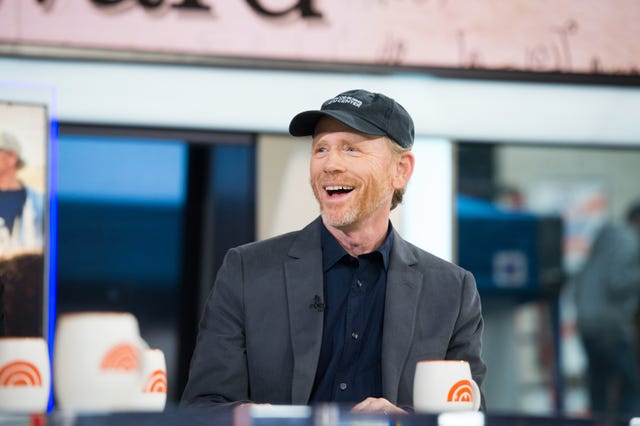
Many words have been used to describe Ron Howard as an actor and filmmaker throughout his seven-decade career, but with the utmost respect for the two-time Academy Award winner and one of the highest-grossing directors in cinema history, it would be fair to say that “sexy” isn’t one of them.
Howard has spent almost his entire professional life as the embodiment of aw-shucks Americana. From his early days on The Andy Griffith Show through to Happy Days‘ affable Richie Cunningham and his wildly successful stint behind the camera, he’s about as close as Hollywood could get to turning picket fences, apple pie, and Fourth of July fireworks into a human being.
As a director, there’s no genre he won’t try at least once. Howard has dabbled in prestige drama, blockbuster sci-fi, nail-biting thrillers, biopics, high fantasy, broad comedy, and sweeping period pieces, but nobody’s expecting him to dive headfirst into a titillating erotic tale. That’s not to say he couldn’t or shouldn’t, it would just be weird if he did.
With that in mind, the movie Howard called the sexiest entry in his back catalogue is about race cars and rivals, with Chris Hemsworth and Daniel Brühl going head-to-head as James Hunt and Niki Lauda in 2013’s Rush. The former certainly embraces the hedonism that comes with being a handsome, wealthy playboy who lives life on the edge, but it was the setting that stirred Howard’s loins.
“It’s a sexy period in one of the sexiest decades that’s been,” he explained to Movies. “It was a period when there was a lot going on. They were all repercussions of the ’60s, but those newfound freedoms were sort of defining themselves. The broadening of media was changing what we understood about our celebrities, and our champions, and ourselves.”
Rush unfolded between 1970 and 1976, and while Hunt was enjoying the excessive, alcohol-fuelled, and promiscuous trappings of celebrity, Howard was starring in the likes of George Lucas’ American Graffiti and Happy Days. “It was a fascinating, freewheeling time,” he elaborated. “And there were a lot of personal train wrecks that went on during that period.”
Obviously, he wasn’t one of them, but having grown up in the business, he could still relate. “It was definitely a wilder, sexier time,” he recalled. “I thought it was interesting to evoke that.” Rush, first and foremost, focused on two diametrically opposed personalities who approached their shared profession in entirely different ways and still managed to rise to the very top.
Hunt embraced the celebrity lifestyle and the bells and whistles that came with it, for better or worse, whereas Lauda did not. It’s not a particularly sexy movie by conventional standards, but it is by Howard’s, with his fond recollections of the seismic societal shifts that defined the ’70s inspiring a high-octane biographical drama that’s admittedly focused more on tarmac than titillation.
